Every couple of months, in the last few years, it seems like we’re reminded that it’s the ’20th anniversary’ of some great, landmark album by some great band or artist.
It is a constant reminder, to me, of what was going on two decades ago: of how much interesting, quality or enduring music was being created by a number of incredibly talented artists.
I’ve marked some of those anniversaries already on this site; and every time I do it makes me long for that era and it also inevitably makes me compare it to the era, musically, we’re currently living in – which makes for a stark and obvious contrast.
Soundgarden were without doubt one of the three or four greatest purveyors of the art of rock music in that era I was growing up in; most bands would struggle to produce even one seminal or classic album, but Soundgarden managed to do it more than once.
And Down On the Upside, released in 1996 and the follow-up to the hugely successful Superunknown, had the monumental Seattle outfit doing what they’d been doing progressively for their whole career: crafting out original, dynamic and interesting rock music of the highest quality and trying to take it in a different direction each time.
The band members produced this album themselves, with mixing help from Adam Kasper. The album was recorded partly at Bad Animals in Seattle and partly at Stone Gossard’s Studio Litho. Most of the basic material was written by Cornell and bassist Ben Shepperd. Shepperd later called the album “the most accurate picture of what Soundgarden actually sounds like.”
The album features classic Soundgarden dynamics, with unorthodox guitar tunings and odd time signatures, and of course Cornell’s glass-shattering vocals, the signature dual guitar interplay and Matt Cameron’s bad-ass drumming. But it has a different underlying vibe to the other albums and feels a bit lighter – not in the heaviness sense, but in vibe. It is sharply less low-vibrational and tuned down as most of Superunknown.
Down On the Upside is at least equal to Superunknown.
Soundgarden as a unit, like Nirvana, always felt more dynamic and interesting than a lot of the other bands: even when some of those other bands were writing really great music, with Soundgarden the intricate interplay and tightness of the unit meant that they even sounded fascinating on tracks that weren’t necessarily great songs in the basic sense.
With a lot of bands, they’re carried by their singer or by a great guitarist or something specific (Stone Temple Pilots were an example of that, where Scott Weiland really made that band a lot richer than it would’ve been), but with a band like Soundgarden, each band member was a top-notch musician and inter-played to create a sublime dynamic and it was the collective unit itself that was most potent.
1996’s Down On the Upside is a perfect expression of that.
Perhaps the most immediately striking thing about Down on the Upside is that it opens so epically bad-ass with ‘Pretty Noose’ – which is pretty much the heaviest and most bad-ass way to kick off a record.
When I first heard ‘Pretty Noose’ – before the album coming out – I was bowled over by it. It’s such a fat, bad-ass assault of tight, dual guitars and perfect drumming all moving at a perfect tempo. The riffing, and the Cornell/Thayil interplay, particular on the verses, is sublime, while the whole track just stumbles along in perfection, every instrument playing its part immaculately in the mix.
‘Pretty Noose’, perhaps along with ‘Blow Up the Outside World’ and ‘Burden in My Hand’, are the obvious, standout tracks.
‘Blow Up the Outside World’ might be the most perfect thing Soundgarden ever did, with its simple, refrained verses and Cornell vocal poetry suddenly shifting into a high-power chorus that a chronic amnesiac could remember. It is an immaculate, epic piece of music; and the chorus really makes you feel like you’re a liberated soul breaking out of a dusty cocoon or a prisoner shattering your chains.
I’ve always felt the song loses some potency and focus after the second chorus and brief solo; but even so, it is a behemoth of a song.
‘Burden in My Hand’ sounds perhaps like more classic, ‘grunge’ Soundgarden, but it is a perfect, immaculate track led by rasping Cornell vocals, subtle, intricate guitar work by Kim Thayil. It flows along like a perfect, ceaseless wave from beginning to end, and is probably the song from DotU that I find myself most often humming to myself.
Concerning the grim nature of the lyrics – the song may or may not be about a man who murders his wife and buries her in the desert – Kim Thayil called the song “the ‘Hey Joe’ of the ’90s.”
‘Pretty Noose’ and ‘Blow up the Outisde World’ alone elevate this record; but the fabulousness doesn’t stop there.
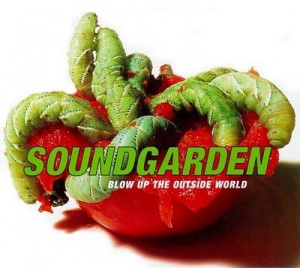
‘Dusty’ is as addictive as it gets, with its odd time signatures and its repetitive, hammered-home riff, it’s big choruses and Thayil’s characteristically intricate, slightly exotic-sounding guitar bits in the bridge. You can’t listen to this track and not have in your head for weeks.
‘Zero Chance’ is a true standout, and one of the most blatantly beautiful things Soundgarden ever did. While perhaps more in line with early Pearl Jam or more commercial ‘grunge’, it is nevertheless disarmingly vulnerable and unashamedly pretty. Chris Cornell’s vocals on this track are incredibly rich and lucid, with the vocal melody particularly mellifluous.
It’s a song that makes you feel like you’re bathing in a kind of audio ambrosia of the gods.
The rest of the album doesn’t necessarily scale the same heights, but what we had was an interesting, curious and unselfconscious range of songs displaying range and maintaining a really strong quality level. ‘Tighter & Tighter’ is a hidden treasure that reveals itself slowly, but is a giant of a track when it fully forms. With its bluesy, moody Cornell vocals and slow build, it gathers itself into something substantial, easily equal to ‘Fourth of July’ or ‘Limo Wreck’ from Superunknown.
‘Overfloater’ is another slow build in the same bluesy, moody vein, and similarly sparing use of harmonics; but it grows into something compelling. Written by Shepperd, it was never played live.
‘Switch Opens’ is an oddly structured, slightly awkwardly paced song, but it thrives on melody and ends up sounding terrific. The more familiar sounding ‘An Unkind’ is more ‘typically’ Soundgarden from earlier days, but comes as a welcome blast this late in the album.
‘Ty Cobb’ is a fast, mad slice of Soundgarden in oddball mode, but has a killer riff and is hard to get out of your head once it’s in there.
‘Boot Camp’, which closes the record, is another little gem; small and unambitious, it is a perfect track to end on, having a dreamy, surreal quality to it, but being a sweeter, more optimistic feeling vibe.
I love that ‘Boot Camp’ is so simple – particularly by Soundgarden standards – and that it gives me such an optimistic, slightly otherwordly, vibe whenever I hear it. Had this been the last ever, chronologically speaking, Soundgarden track on an album, it would’ve been a fitting one: and for a long time, we thought it was exactly that.
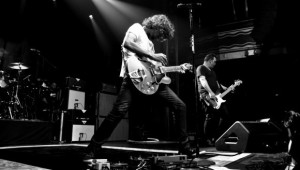
Down On the Upside would be the last album before what would be 12-year hiatus.
It still stands as probably the last great Soundgarden album.
Debatably, it is also the last great album of the ‘alternative rock’ (or even grunge) era too; Alice in Chains and Nirvana had already pretty much gone by this point and Smashing Pumpkins had already reached their zenith with Meloncollie & the Infinite Sadness.
I’ve always felt like – and maybe it’s just a personal thing – Down On the Upside, perhaps along with Pearl Jam’s No Code (which was released a month or so later), did represent that last great artistic flourish for those incredible bands: a triumphal creative end-note for not just Soundgarden as a band, but that whole, rich era and its musical output.
While some bands and artists continued to put out albums for years after this – and there were still some good ones – this might’ve been the last proper great one.
It is also a hard rock masterclass in songwriting, composition, production, diversity and range.
It’s still tricky to pick a favourite Soundgarden album with absolute confidence; most fans will still say Badmotorfinger or Superunknown. But, for me, Down On the Upside is absolutely a contender.
God, I love this band.

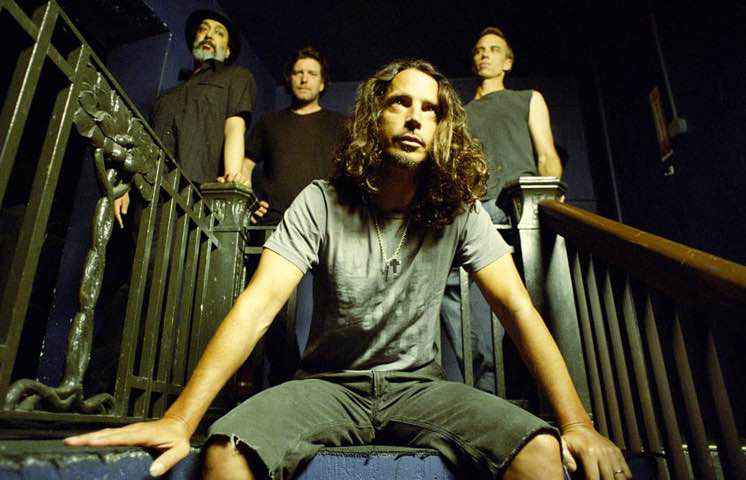
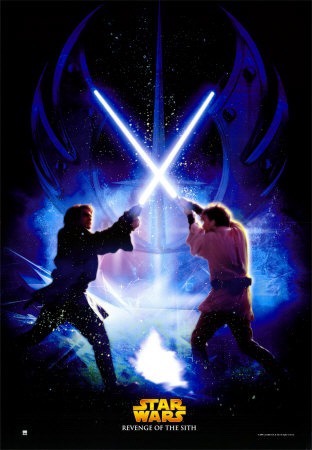
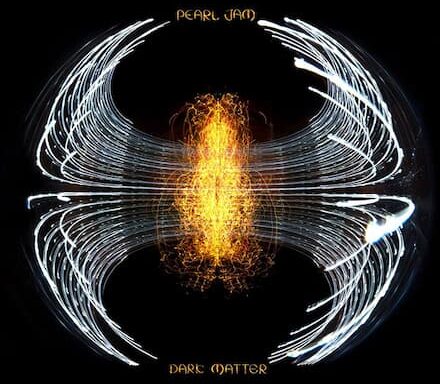
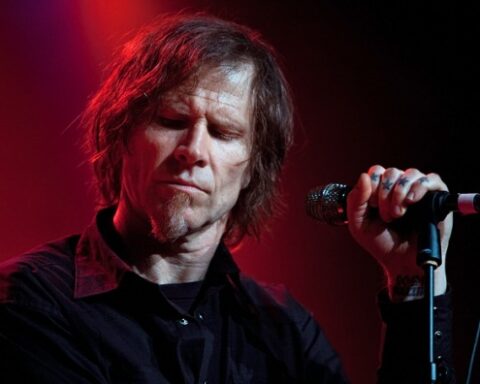
STP no4 was released in 1999. In my opinion it’s better than down on the upside. Both are good albums though. Superunknown is in the top 5 best albums of the 90s. Although I was in the early and mid 90s a fan of nirvana, when you compare them with soundgarden, blind melon, toadies, AIC, they didn’t have the same level of musical skill. I believe blind melon was the best musicians out of the whole bunch. Great article.
I love STP’s album No4 too, but I would disagree on it being a better album than DotU. I’ve kind of stopped comparing all those bands in terms of musical proficiency. Nirvana is still my all-time favorite band probably: but, really, I love AIC, Soundgarden, etc, so much that it becomes a moot point.
I agree with you fully about Blind Melon though. As musicians, they were the best of the whole lot. I’ve done a couple of Blind Melon articles on this site too – particularly about the 1995 ‘Soup’ album. I don’t know if you’ve read them here or not: but the gist of it was that ‘Soup’ is one of the most underrated, under-appreciated albums in music history.
Thanks for stopping by; and for commenting.